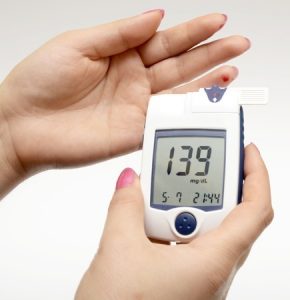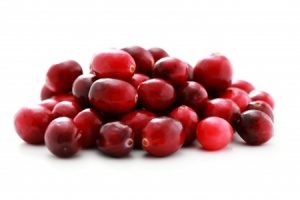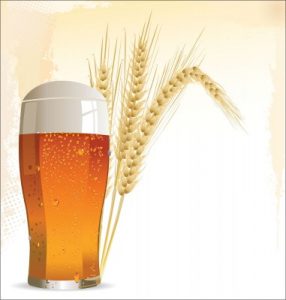
Do you feel guilty when you eat candy or drink more beverages during holiday celebrations?
June de Spain writes an interesting chapter on candy and beverages in my book ˆThe Richardson Cancer Prevention Diet”, and keep in mind, her book was written in the 1970s before the onslaught of pharmaceuticals, NutraSweet®, and the sugar-free diet craze.
Decades ago, candy seemed more of a treat than it is today, but then as now, candy itself is not necessarily the bad guy.
One of the problems with sweets, according to de Spain, is too many sweets discourage an appetite for other foods, so they should be kept to a minimum.
Sugar-free sweets with artificial sugar additives are not the answer, either. Sugar-free does not mean responsibility-free.
They market diet products as the solution to eating whatever you want with no consequences.
Sugar-Free and Diabetes

The artificial sweeteners can be as harmful, if not more harmful, as eating sugar, especially if you are battling cancer or another degenerative disease. The amount of unnatural chemicals in many artificial sugar substitutes have toxic by-products, among their other problems.
If you are diabetic, eating sugary things can be done with maximum moderation, and monitoring your insulin in response to having an uncommon dessert or candy during the holidays or special occasions can be better than eating sugar-free candy, drinking diet beverages, and indulging in desserts.
Simply stated: keep candy and sweets to a minimum. Make your own candy and use sorghum molasses, which is rich in vitamin B17, and buy local honey to replace refined sugar and artificial sweeteners.

Healthy Substitutes
During holiday get-togethers, provide candy substitutes such as dried fruits, which are high in vitamin B17. They satisfy a sweet tooth and are high in vegetable protein, vitamins, and minerals.
Some good substitutes include:
- dried apricots
- dates
- raisins
- apples
- cherries
- prunes
- pears
- peaches
- raw nuts
- seeds
- popcorn
- soy nuts
Fruit Leather
A delicious replacement for candy is “fruit leather.” Western pioneers made fruit leather.
Make fruit leather by pureeing raw, fresh fruit in the blender.
Pour into thin sheets onto a cookie sheet lined with waxed paper. Let it dry for about three days in a slightly warm oven.
Roll it up in its waxed paper lining and store in a cool, dry place. Freeze it if you like.
Fruit leather is not dry or sticky. It doesn’t require refrigeration. It satisfies a sweet tooth, and is a chemical-free food rich in vitamin B17.
It’s a sweet snack that is good for you.
Food Tip

Here’s a food tip: when you bake sweets, use whole wheat flour, honey or sorghum cane syrup, rich in vitamin B17, and natural extracts. Above all, don’t use alkalizers such as baking powder or bicarbonate of soda.
These neutralize stomach acids, contain metals, and destroy important B-Complex vitamins.
Avoid hardened and hydrogenized fats such as margarine and Crisco®- type fats when preparing sweets and desserts, and forgo artificial colors.
Avoid cooking fruits in desserts, too. Cooking kills valuable digestive enzymes.
Eat all of your fruit raw, when possible. Raw fruit and natural cheeses make delicious desserts. Add raw nuts and your desserts will be not only tasty, but healthy.

Beverages
Back in the 1970s, colas (or soft drinks as we call them in the South) were not as widespread as today.
Soft drinks were not available in public schools, there were not as many drive-through restaurants from which to purchase a soft drink with every meal, neither were there “big gulps” for all to buy at the quickie-mart.
Beverages should ideally be thirst-quenching, refreshing, and nourishing. Instead of colas, especially diet sodas, drink 100 percent fruit juices NOT from concentrate. Pour the juices into a frosty mug or add natural ice cream (ice milk or frozen yogurt) for a sweet treat.
Create your own sodas by adding sparkling water or spring water to fruit juices or to milk with ice cream. Puree fruits and add sparkling water with a squeeze of lime.
Always limit the number of soft drinks you consume daily. If you must drink a carbonated soda, drink a regular soft drink as opposed to a diet
cola. And, diet colas are especially harmful when recovering from disease.
Many natural health food markets offer herbal colas and beverages made from more natural ingredients that taste like the old-fashioned colas from the past. The ginger-ales are the best.
Remember that during the holiday season, you’ll probably eat or drink things that you’d normally not eat or drink. Don’t deny yourself having fun as you celebrate with friends and family – simply manage your consumptions responsibly.
________________
If you want to learn more about healthy eating and get healthy recipes, contact me at janethull.com. Remember that you are never alone when you are looking for good health!
Gain access to all of my online programs, ongoing support, monthly Q&A, and more by joining my Private Inner Circle Membership Program. I look forward to supporting you on your journey to alternative health and wellness.
_____________
Disclaimer: This article is for informational purposes only, and is educational in nature. The FDA may not have evaluated some of the statements. This article is not intended to diagnose, treat, cure, or prevent any disease. Please discuss with your own, qualified health care provider before adding supplements or making any changes to your dietary program.
Before taking vitamins, consult your doctor; pre-existing medical conditions or medications you are taking can affect how your body responds to multivitamins.
You have our permission to reprint this article if you attribute us with a live back-link to this article and the youtube links. https://janethull.com/